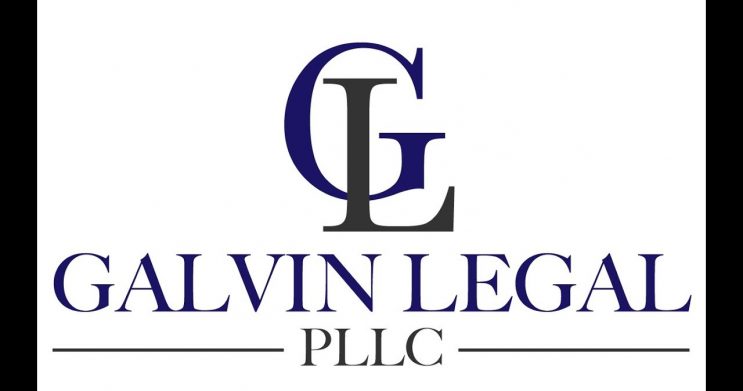
Did you lose money investing with Huanwei Huang (a/k/a Andy Huang) (CRD# 3268328)?
Galvin Legal, PLLC is launching an investigation on behalf of investors who may have suffered losses investing with Huanwei Huang (a/k/a Andy Huang). If you suffered losses investing with Huanwei Huang (a/k/a Andy Huang), then Galvin Legal, PLLC may be able to help you recover your losses in a Financial Industry Regulatory Authority (“FINRA“) arbitration claim.
If you suffered losses and would like a free consultation with a securities attorney, then please call Galvin Legal, PLLC at 1-800-405-5117.
As of September 27, 2020, Huanwei Huang (a/k/a Andy Huang)’s FINRA BrokerCheck Report contains the following:
Disclosure Events
1 Regulatory Event(s)
See FINRA Disciplinary Proceeding No. 2016049565901 Complaint
See FINRA Disciplinary Proceeding No. 2016049565901 OHO Decision
UPDATE 9/27/2020: According to FINRA’s July 2019 Disciplinary Actions: “Glendale Securities, Inc. (CRD #123649, Sherman Oaks, California), Jose Miguel Abadin (CRD #1273345, Beverly Hills, California), George Alberto Castillo (CRD #1936486, Newhall, California), Paul Eric Flesche (CRD #3277904, Los Angeles, California), Huanwei Huang (CRD #3268328, Brooklyn, New York) and Albert Raymond Laubenstein (CRD #303462, Rancho Palos Verdes, California) May 23, 2019 – FINRA appealed part of an OHO decision to the NAC and the NAC subsequently called for review other parts of the same decision. The firm was censured, fined $155,000, of which $30,000 is to be paid jointly and severally, and the OHO decision shall serve as a Letter of Caution for the firm’s failure to conduct proper due diligence on a bank based in Belize and its customer accounts. Flesche was fined $30,000, jointly and severally, and suspended from association with any FINRA member in all capacities for 30 business days. Huang was fined $5,000, suspended from association with any FINRA member in all capacities for 10 business days and the OHO decision shall serve as a Letter of Caution for his violation of the SEC Regulation S-P. Laubenstein was fined $25,000, suspended from association with any FINRA member in all capacities for 18 months and for an additional 15 business days to run concurrently with the 18-month suspension, and the OHO decision shall serve as a Letter of Caution for his failure to conduct proper due diligence on the Belize bank and its customer accounts. The charges as alleged against Abadin and Castillo were dismissed. The sanctions were based on findings that the firm, acting through Laubenstein, failed to establish and implement reasonable anti-money laundering (AML) policies and procedures to detect, investigate and report, where appropriate, suspicious activity related to liquidations by firm customers of the securities of three low-priced, speculative penny stocks. The findings stated that the firm’s primary line of business was liquidating speculative, low-priced securities for its customers and the deposit and trading activity involving the low-priced, speculative penny stocks was suspicious given the issuers’ background, the manner in which the customers acquired their shares, the number of shares acquired and the proceeds they earned from the sales. Laubenstein, the firm’s AML Compliance Officer (AMLCO), failed to ensure that the firm’s AML program was adequately tailored to reduce the risks posed by its penny stock liquidation business. This enabled the suspicious activity to continue without an adequate evaluation of the customers’ trading in those stocks. The findings also stated that the firm, through Laubenstein, failed to employ non-documentary means of verifying Huang’s customers’ identities for compliance with the firm’s customer identification program (CIP). The firm and Laubenstein failed to conduct reasonable due diligence into the nature of the Belize bank’s undisclosed customers’ activities, as required by the implementing regulations of the Bank Secrecy Act. They also failed to respond to red flags associated with the undisclosed customers and their accounts. Furthermore, the firm, acting through Flesche and Laubenstein, failed to supervise Huang’s communications with his customers in Asia. Even though Flesche knew that Huang opened accounts and engaged in transactions with customers based in Asia, he failed to inquire how Huang communicated with his customers generally or ensure that customers understood the substance of his communications. Laubenstein was responsible for reviewing Huang’s emails; however, his reviews were limited to periodic English-language word searches of emails contained in the firm’s email archive and he therefore failed to identify red flags of suspicious activity in Huang’s emails with customers. Laubenstein’s review was also unreasonable because he took no steps to adopt search terms for Huang’s non-English written communications. The findings also included that Huang improperly disclosed confidential customer information by providing non-public personal information to a third party without the customers’ consent in violation of SEC Regulation S-P. FINRA found that Huang used a texting service on his cell phone to communicate with a customer and his assistant instead of the firm’s email system that prevented the firm from being able to capture his communications with the customer in its email archives, and caused the firm to keep inaccurate books and records. The Hearing Panel dismissed causes one and two of the Complaint because FINRA failed to prove by a preponderance of the evidence that the firm and Castillo violated Section 10(b) of the Securities Exchange Act of 1934, Rule 10b-5 thereunder, and FINRA Rule 2020 by manipulating the price of a penny stock. A majority of the Panel also found that FINRA failed to prove by a preponderance of the evidence that the firm, Abadin and Flesche participated in the unlawful resale by customers of a company’s shares, in violation of Section 5 of the Securities Act of 1933. These charges are therefore dismissed. In addition, the Hearing Panel dismissed cause three of the Complaint against Abadin, Castillo, Flesche and Huang after determining that they were not responsible for the firm’s AML program because they were not designated as AMLCOs of the firm. The Hearing Panel dismissed allegations against Flesche and Huang related to failing to comply with the firm’s CIP, on the grounds that Laubenstein, as the firm’s AMLCO, had primary responsibility for implementing the CIP as part of the firm’s overall AML program. Flesche and Huang did not engage in misconduct that impeded Laubenstein from performing his AML-related duties.The sanctions are not in effect pending review. (FINRA Case #2016049565901 Complaint and OHO Decision)
Current and Previous Registrations
11/02/2005 – PRESENT GLENDALE SECURITIES, INC. (CRD#:123649) NEW YORK, NY
04/25/2002 – 10/20/2005 GREAT EASTERN SECURITIES, INC. (CRD#:2061) NEW YORK, NY
06/28/2001 – 04/09/2002 GLOBAL ACCESS FINANCIAL SERVICES (CRD#:30998) LAKE SUCCESS, NY
FINRA expelled the firm on 03/18/2003
09/26/2000 – 06/15/2001 WHITE PACIFIC SECURITIES, INC. (CRD#:42505) SAN FRANCISCO, CA
If you suffered losses and would like a free consultation with a securities attorney, then please call Galvin Legal, PLLC at 1-800-405-5117.
Due Diligence Requirement
FINRA requires broker’s to conduct due diligence on investments and to conduct a suitability analysis when recommending securities to a customer that takes into account the customer’s knowledge and experience. FINRA Rule 2111(a) states that “a member or an associated person must have a reasonable basis to believe that a recommended transaction or investment strategy involving a security or securities is suitable for the customer, based on the information obtained through the reasonable diligence of the member or associated person to ascertain the customer’s investment profile. A customer’s investment profile includes, but is not limited to, the customer’s age, other investments, financial situation and needs, tax status, investment objectives, investment experience, investment time horizon, liquidity needs, risk tolerance, and any other information the customer may disclose to the member or associated person in connection with such recommendation.”
Rule 2111 is composed of three main obligations: reasonable-basis suitability, customer-specific suitability, and quantitative suitability. Brokers and the brokerage firms they work for that fail to conduct adequate due diligence on investments they recommend or that make unsuitable recommendations can be held responsible for the customer’s losses in a FINRA arbitration claim.
If you suffered losses and would like a free consultation with a securities attorney, then please call Galvin Legal, PLLC at 1-800-405-5117.
Request a Free Consultation with a Securities Attorney
If you suffered losses investing with Huanwei Huang (a/k/a Andy Huang) and would like a free consultation with a securities attorney, then please call Galvin Legal, PLLC at 1-800-405-5117.
This information is all publicly available and is being provided to you by Galvin Legal, PLLC.
Galvin Legal, PLLC is a national securities arbitration, securities mediation, securities litigation, securities fraud, securities regulation and compliance, and investor protection law practice. For more information on Galvin Legal, PLLC and its representation of investors, please visit www.galvinlegal.com or call 1-800-405-5117.

